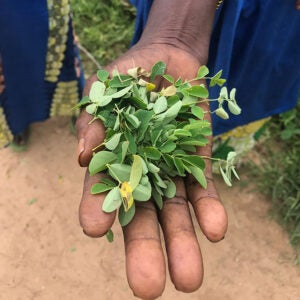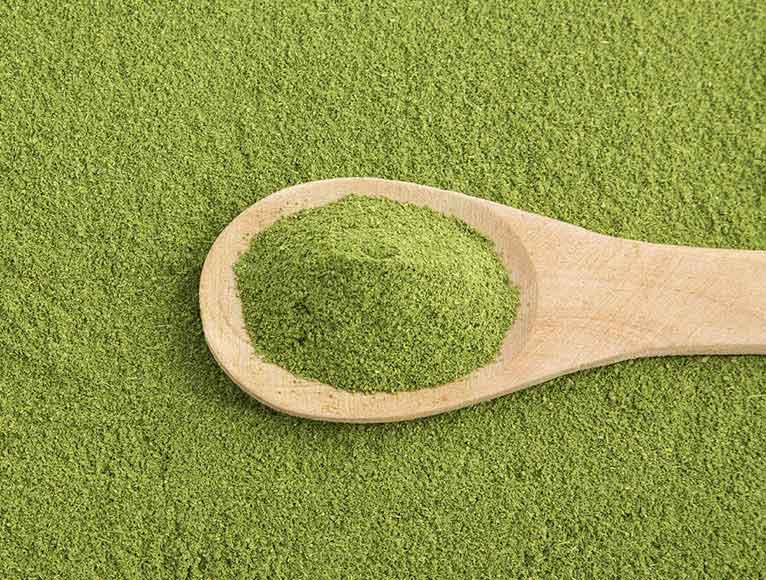Share With Others!
There is a green superfood that is going viral on TikTok that looks like matcha, tastes a bit like matcha, and starts with an “m”…but isn’t actually matcha. This superfood is moringa!
Moringa and matcha are two green superfoods celebrated for their health benefits. While both offer valuable nutrients, they differ significantly in their nutritional profiles and potential health impacts.
What Are Moringa and Matcha?
Moringa, derived from the Moringa oleifera tree native to parts of Africa and Asia, is often referred to as the “drumstick tree” or “miracle tree.” Its leaves are dried and ground into a fine powder rich in vitamins, minerals, and antioxidants.

Matcha is a type of powdered green tea made from shade-grown tea leaves. It has been integral to Japanese tea ceremonies for centuries and is known for its vibrant green color and distinct flavor.
- Protein and Amino Acids: Moringa contains all nine essential amino acids, making it a complete plant-based protein source. This is particularly beneficial for individuals seeking non-animal protein options.
- Vitamins and Minerals: Moringa is rich in vitamins A, C, and E, calcium, potassium, and iron. Notably, it provides higher levels of these nutrients compared to matcha, which is also nutritious but in different proportions.
- Antioxidants: Both superfoods are abundant in antioxidants that combat oxidative stress. Moringa contains compounds like quercetin and chlorogenic acid, while matcha is high in catechins, particularly EGCG.
Moringa & Matcha Health Benefits
Incorporating moringa or matcha into your diet can offer various health benefits:
- Anti-Inflammatory Properties: Moringa has been shown to possess significant anti-inflammatory effects, which may help with certain health conditions.
- Energy and Focus: Matcha contains caffeine and L-theanine, which together can enhance alertness and concentration without the jittery effects associated with other caffeinated beverages. Moringa is rich in iron and B Vitamins which is why many people find it gives them a gentle, caffeine-free energy boost.
Both powders are versatile and can be added to various recipes:
- Smoothies: Blend a teaspoon of moringa or matcha powder into your favorite smoothie for a nutrient boost.
- Lattes: Prepare a moringa or matcha latte by whisking the powder into warm milk or a milk alternative.
- Baking: Incorporate the powders into baked goods like muffins or energy bars to enhance their nutritional value.
Need recipe ideas? Browse GNC’s recipes for baked good, drinks and smoothies here!
Considerations When Taking Moringa & Matcha
While both superfoods are generally safe for consumption, it’s essential to consider the following:
- Caffeine Content: Matcha contains caffeine, which may not be suitable for individuals sensitive to stimulants.
- Quality and Sourcing: Ensure you purchase high-quality, organic moringa and matcha powders from reputable sources to maximize health benefits and minimize exposure to contaminants. Kuli Kuli Foods is the leading moringa brand in the United States and ensures that every batch of moringa is carefully sourced and rigorously tested.
In conclusion, both moringa and matcha offer unique health benefits and can be valuable additions to a balanced diet. Your choice between the two may depend on your specific nutritional needs and health goals.
Read more about the nutritional differences between moringa and matcha, and find citations at https://blog.kulikulifoods.com/2015/03/06/moringa-vs-matcha.
